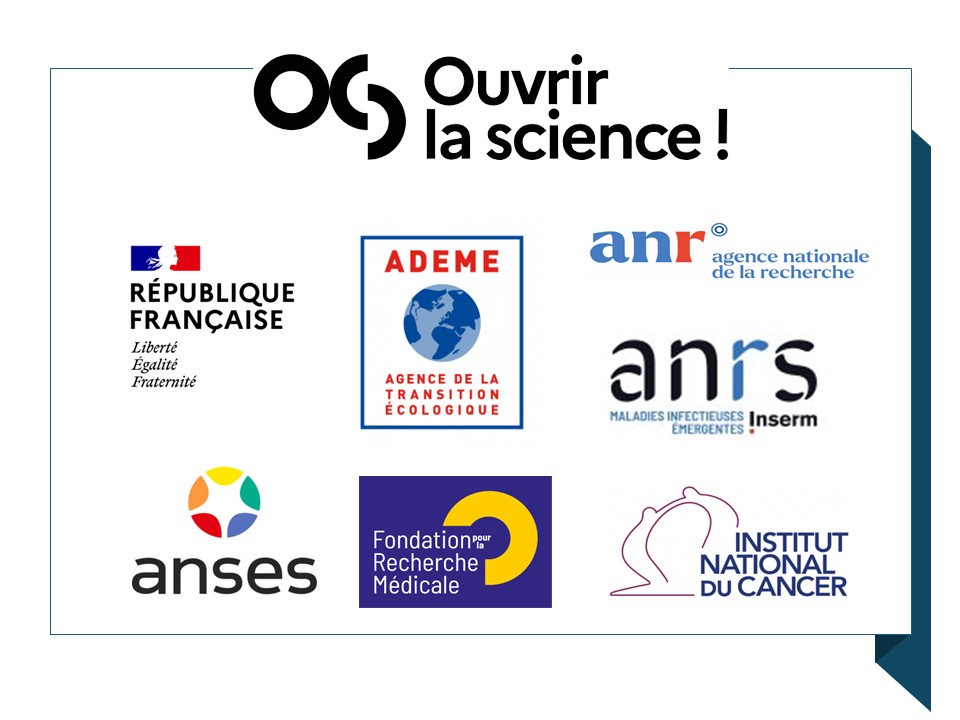
Open science: an ANRS MIE priority
Open science refers to the unhindered dissemination of results, methods and products from scientific research.
Published on 25 April 2024
Transparency for greater scientific integrity
Open science democratises knowledge by making it more accessible and beneficial to everyone in order to promote a more transparent and comprehensive form of scientific research.
A lever for scientific integrity, it fosters the trust of citizens in science.
In 2018, France’s Ministry of Higher Education, Research and Innovation launched a National Plan for Open Science.
Its first edition (2018-2021) led to significant progress:
- The proportion of open access scientific publications in France rose from 41% to 56%.
- The National Fund for Open Science was created, launching two calls for proposals to promote open scientific publication and providing support for international flagship initiatives.
- The French National Research Agency (ANR) and other funding agencies such as ANRS MIE now require that the projects they fund draw up data management plans and make their publications available as open access.
Its second edition (2021-2024) has three components:
- One: to generalise open access to publications, whether this is done by initially publishing the text as open access or by placing it in an open public archive such as HAL.
- Two: to structure, share and open up research data to ensure that the data produced by French public research are progressively structured in accordance with the FAIR principles (Findable, Accessible, Interoperable, Reusable).
- Three: to open up and promote the source codes produced by research – in particular by supporting the open-source dissemination of source codes resulting from publicly funded research.
The commitments of our agency
Our agency participates in the development of open science with our French funding agency network partners (ANR, ANSES, INCa, ADEME and the Fondation pour la Recherche Médicale, which joined in 2024). We raise the awareness of and involve the researchers we fund in the stakes and best practices, in order to:
- Promote free access to scientific publications.
- Foster the opening up of research data in accordance with the paradigm ‘as open as possible, as closed as necessary’.
Share practices and methods to assess the scientific quality of projects, in accordance with San Francisco Declaration recommendations. - Inform and raise awareness among beneficiaries through the sharing of best practices.
- Open up the data relating to the projects funded by each institution in accordance with the Open Government Partnership and France’s Digital Republic Law.
- Publish an annual report on the actions and measures implemented in favour of open science.
We continue to pursue our actions in favour of open science
- In 2023, we supported the Action Plan for Diamond Open Access. This plan promotes a publication model that enables researchers to disseminate their work in open access conditions with no publication fees and be able to read articles free of charge – its economic model being based on academic grants.
- We have also helped to set up a working group as part of the Coalition on Advancing Research Assessment (CoARA), of which we have been a member since 2022. By taking part in the “Improving practices in the assessment of research proposals” working group, the Agency aims to help identify innovative approaches to project selection and assessor training. Alongside the opening up of publications, data and source codes, the research assessment reform is of great importance to open science.
- Finally, at the end of 2023, we initiated a preliminary internal review regarding the access to, management and sharing of research data. One of the objectives could be to develop an institutional policy on the subject in 2024.
Updates to the Open Science section of our calls for proposals regulations and the creation of a collection in HAL
In 2024, we are changing the regulations for our calls for proposals, in which:
- the full text of the scientific publications resulting from projects we fund shall be submitted to the HAL national open archive no later than the time of publication.
- peer-reviewed scientific publications resulting from projects we fund shall be made available, under a Creative Commons Attribution (CC-BY) licence or equivalent, via one of the following routes: i. publication in a natively Open Access journal; ii. publication in a subscription journal under a transformative agreement or in a
- transformative journal; iii. publication in a subscription journal with submission of the version of record or post-print in the HAL open archive under a CC-BY licence implementing the rights retention strategy.
- eligibility for funding of publication fees or Article Processing Charges (APC) shall be displayed, with the exception of those concerning hybrid journals (subscription journals without any transformative agreement in progress).
- encouragement shall be given to the submission of initial versions, pre-prints, to open platforms or archives and the use of permanent or unique identifiers (e.g. DOI, HAL Id or ORCID).
- recommendation shall be made for the use of the “structured” data management plan model on the OPIDoR DMP portal.
We will enter the data relating to the research funded by our agency as part of our calls for proposals on the open public data platform data.gouv.fr. and create our own collection in HAL. One of the objectives of our agency is to facilitate the link between the funding we implement and the research that results from this.

